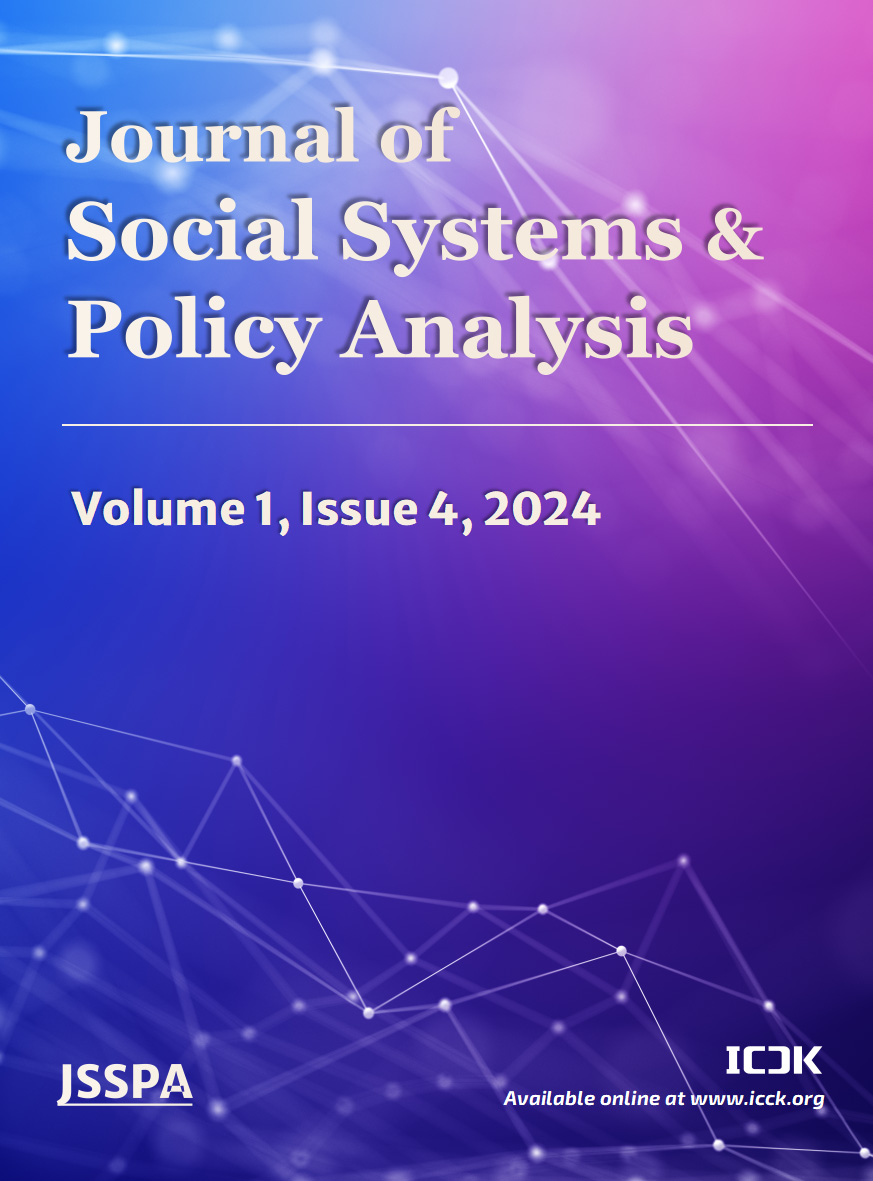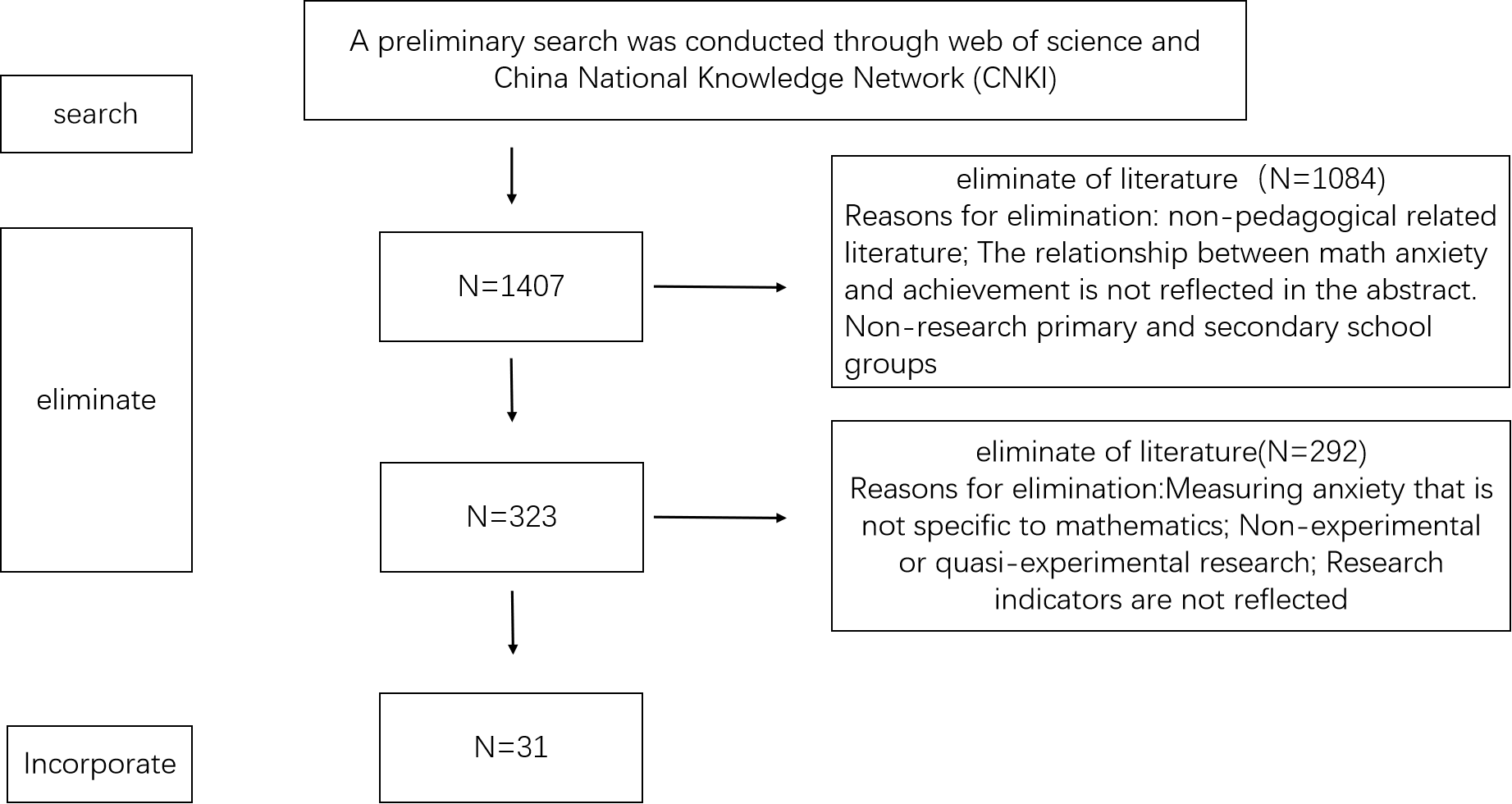Abstract
In the stage of compulsory education, there are still many researches on the relationship between math anxiety and students' math achievement. If we cannot understand the internal mechanism between students' emotions and learning performance, we cannot establish a microfoundation for monitoring the quality of compulsory education. In order to further identify the logical relationship between math anxiety and students' math achievement, we systematically collected 31 relevant literature from 2014 to 2024, including a total of 106,636 student samples, and conducted a meta-analysis based on the random effects model. The results show that the correlation coefficient between math anxiety and students' math achievement is -0.322, which is a moderate negative correlation. Further mechanism analysis based on the moderating variables showed that the three moderating variables, self-efficacy, teachers' independent support and teacher-student relationship, all contributed to the alleviation of students' math anxiety and had a certain positive impact on the improvement of students' math academic achievement. However, the influence of math anxiety on students' math academic achievement was not significantly moderated by gender and gender stereotype. The aim of this study is to alleviate the mathematics anxiety of students in the compulsory education stage, and to provide suggestions for improving the mathematics academic performance of students: self-regulation to enhance self-efficacy, improve teaching effect with teacher support, to optimize the environment and ease negative emotions.
Keywords
math anxiety
mathematics academic achievement
meta-analysis
self-efficacy
teacher-student relationship
Data Availability Statement
Data will be made available on request.
Funding
This work was supported without any funding.
Conflicts of Interest
The author declare no conflicts of interest.
Ethical Approval and Consent to Participate
Not applicable.
Cite This Article
APA Style
Yan, X. (2024). How Does Math Anxiety Affect Students’ Academic Achievement in Mathematics? —A Meta-Analysis Based on 31 Experimental Studies. ICCK Transactions on Social Statistics and Computing, 1(4), 123–134. https://doi.org/10.62762/JSSPA.2024.672218
Publisher's Note
ICCK stays neutral with regard to jurisdictional claims in published maps and institutional affiliations.
Rights and permissions
Institute of Central Computation and Knowledge (ICCK) or its licensor (e.g. a society or other partner) holds exclusive rights to this article under a publishing agreement with the author(s) or other rightsholder(s); author self-archiving of the accepted manuscript version of this article is solely governed by the terms of such publishing agreement and applicable law.


 Submit Manuscript
Edit a Special Issue
Submit Manuscript
Edit a Special Issue

